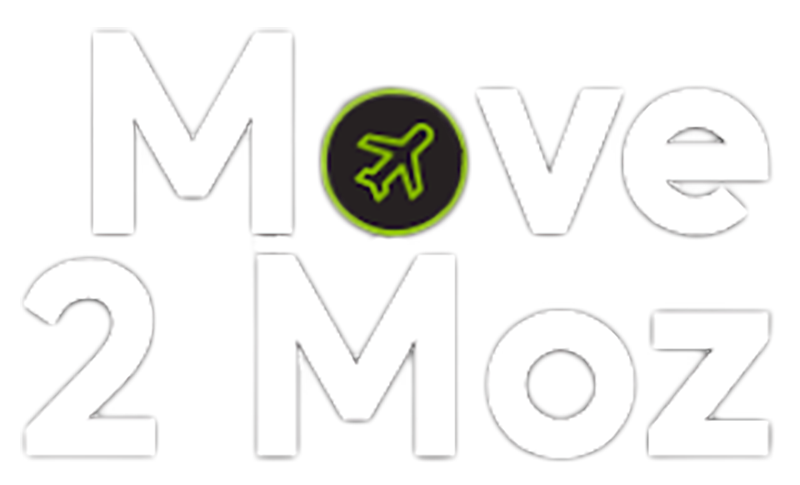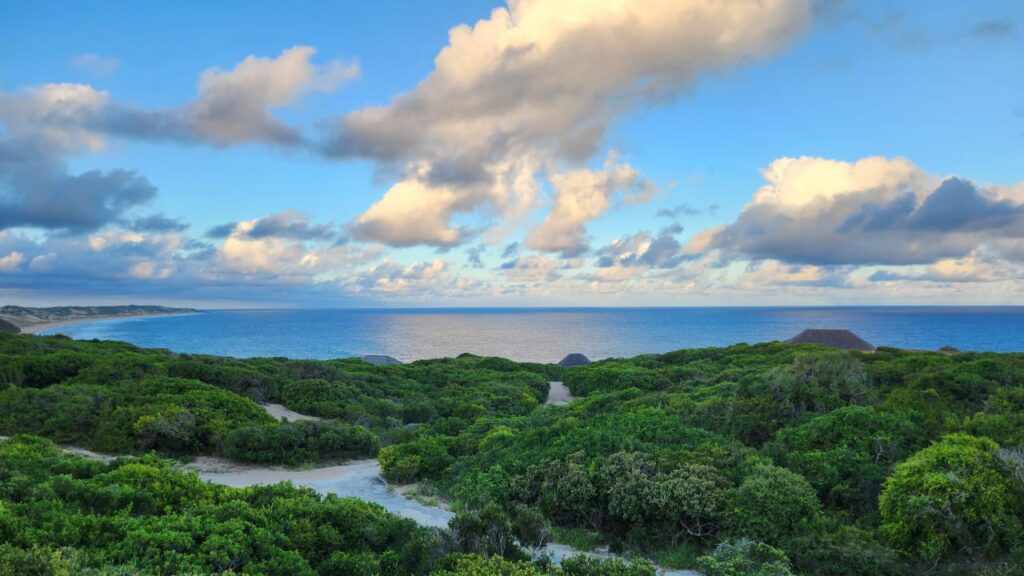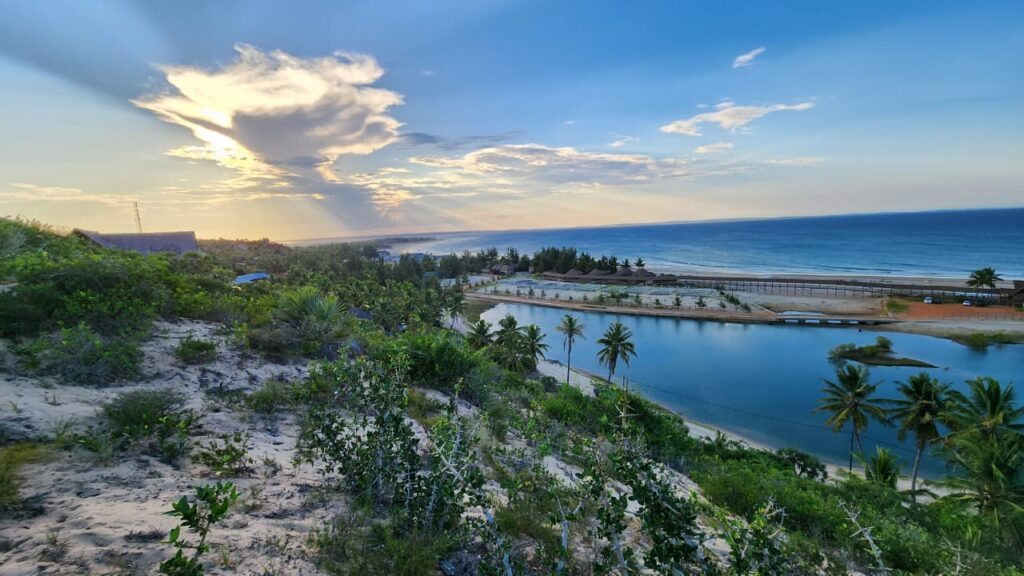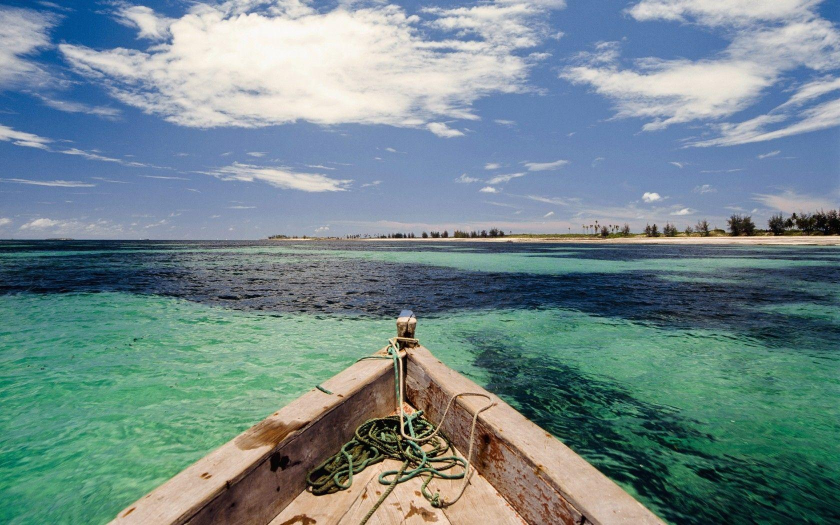
For clarity’s sake, a few definitions:
Land – Barren undeveloped lot
Property – physical brick and mortar structures such as apartments, houses, warehouses, etc.
Source: micasa.co.mz
After independence, the newly independent government of Mozambique nationalized all land and property. The state managed all aspects of the housing sector and allocated housing to its citizens, who would in turn pay rent to the government.
The rent that the government charged citizens was more of a token fee and proved to be unsustainable as the rental fees were not enough to actually maintain the properties. Residents too were unwilling to invest any of their money on home maintenance, as the properties were legally not theirs. This, combined with a lengthy civil war, culminated in a state of urban decay and disrepair, leaving most of Maputo’s buildings dilapidated.
In the 90’s the Mozambican government, burdened by lack of funds and the struggle of administering property (and being everybody’s landlord), decided to privatize the property sector and gave tenants the option of buying the homes that they had lived in outright (once again for a token fee). Buying and selling became a private affair and so did the upkeep of property.

The property market in Mozambique is totally privatized. Property is legally sold and bought in Mozambique by both foreigners and locals alike. Property does not have the same legal hurdles as does land. Title deeds are openly and legally traded, and foreigners, regardless of how long they have resided in Mozambique, are free to buy and sell. The buying and selling process will be detailed in the following article.

The rules that apply to purchasing land differ slightly from those that apply to purchasing property. In theory (and by law funny enough), land cannot be bought or sold in Mozambique. Unlike property, ALL land belongs to the state, and the state grants individuals or corporations, the “right to use land” for a number of years in the form of what is locally known as a DUAT (Direito do Uso e Aproveitamento de Terra) or the Right of Land Usage.
Any structure subsequently built on that land belongs to you and can be sold as you see fit, butthe land it sits on belongs to the state. In in theory, barren land can merely be “transferred” (not sold) from one DUAT holder to another. This applies to both locals and foreigners. Obviously, this makes little to no sense. These are nothing less than remnants of our socialist past. In practice, land is very openly bought and sold in Mozambique by both foreigners and nationals, and both reserve the right to own land.
The rules do differ a little for foreigners. By law, individual foreigners who intend to acquire barren or undeveloped land, must have been resident in Mozambique for a minimum of 5 years. Companies owned by foreigners, however, do not have those same restrictions, and are allowed to acquire land as they please, regardless of how long they have been operating in Mozambique.
For individuals who have been in Mozambique for less than five years and wish to buy land, these rules are easily bypassed by simply building any kind of structure on the barren land before purchase. Now instead of buying land, you are buying the structure, hence purchasing a property
So, can the government strip me of my land? In theory yes, but that is highly unlikely. Besides if you’ve built a structure on it, they would physically have to move your property off their land to repossess it. So… fat chance!
The seller presents the titles deeds known as a “certidão de registro predial” and a copy of these is taken to the local deeds office to confirm their authenticity. This also makes sure that the property hasn’t already been sold to someone else, that the property is not mortgaged and that the seller has the right to sell the property.
If all that checks out, a preliminary contract of intent to purchase (known as promesa de compra e venda) is signed between the buyer and the seller. This contract locks both parties into the transaction, penalizing either party in the event that one reneges. Upon signing this contract, a down payment is made, usually 10 to 20% of the total value of the property. A deadline is set for the seller to get the deed transfer going. This is usually between 30 days.
This gives the owner of the property enough time to handle all bureaucracies concerning the property, make sure all necessary documents are up-to-date and provides the buyer with enough time to make available the remaining capital necessary to complete the purchase.
As a buyer, you should have certified copies of your identification documents on hand and make them available to the seller should he so require them.
During this period, the seller is handling the first of the paperwork that makes the transfer of ownership possible by obtaining what is known as a “certidao matricial”. This document is issued by the local municipality and basically confirms that all municipal taxes regarding the property are not in arrears.
The seller then presents the buyer with the “certidão matricial” along with an up to date (in the seller’s name) property registration or “certidaão de registo predial”. The buyer then takes these documents to BAU (Balcão de Atendimento Único) to proceed to pay SISA.

SISA is the Mozambican property transfer tax. The cost of SISA unless agreed otherwise, is borne by the buyer. The current transfer tax rate is 2% of the sale price of the property. This process is usually completed on the same day. During this time, a draft of the final property sale contract is drafted.
NB. By local norms, the buyer MUST be ready to complete payment of the property immediately upon signing of the public deed. In some instances, keys to the property being sold are exchanged upon signing of the same. The signing of the public deed registry is not free, and unless agreed otherwise, this expense is borne by the buyer.
Once all the above has been finalized, the contract of sale is signed and an escritura publica or “public deed” is signed between both parties at the notary or BAU. This makes the transfer of ownership a matter of public record and binding. The final contract is to be presented at the signing of the “escritura publica” as well as the identification documents of both parties. The parties must present proof of payment of necessary taxes along with an up to date “certidão de registro” and “certidão matricial”.
By now, for all intents and purposes you are a proud owner of a new property. The last step involves “registro predial” or “property registration”. The purpose of which is to consolidate, make public the new legal standing of the property and guarantee legal security. Additional benefits include having easier access to financing from banks later on should you so require. This registration takes place at “BAU” or “Conservatorio do Registro Predial”. Your identification documents along with the certificate from the public deed registry process is to be presented and necessary taxes are to be paid. This process is normally finalized within 5 days.
And there you go. You are now a proud property owner!
Avoid properties that don’t have clear ownership. This is often the case of properties that are registered in the name of someone who is deceased, and that person’s heirs are selling the property. If you really must buy a property in this sort of circumstance, it is highly advisable to seek legal counsel, as these types of transactions are never straightforward and often take months (sometimes years!) to resolve.
If you’re adopting a hands-on approach, it would be good to get to know before hand where the above-mentioned government offices are in your city and know what they charge for every step of the process, and what forms should be submitted. This helps you avoid getting any nasty surprises along the way.
However, in reality, it’s completely possible for a foreign citizen to buy and OWN property in Mozambique. That’s right, it’s yours forever, and you can keep it in your family or company forever and a day.
In doing so, we ensure that all legalities of the transaction are met, thereby protecting your investment and assuring you of peace of mind.
All ancillary services such as obtaining VISAS, Work Permits, Car Registrations, Re-location of Pets and more are offered by Move to Moz as well. No matter your budget or objective, we will help you every step of the way in realising your vision.